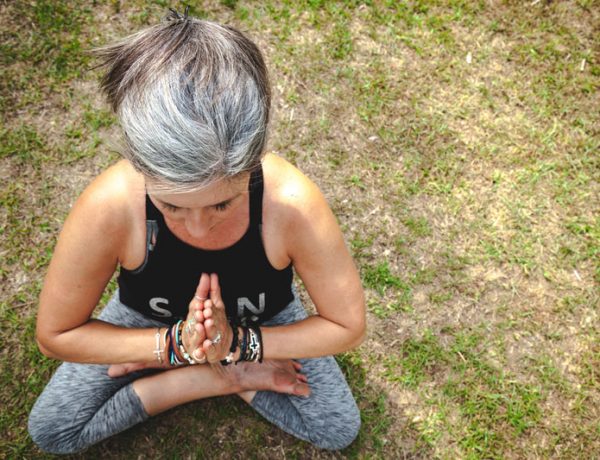I know I’m getting stressed out when I start getting a little verbal while driving. Stress is one of those symptoms that can sneak up on you without any warning.
Having trouble concentrating, sleeping or enjoying your usual hobbies? Stress may be the culprit. These can also be symptoms of depression but stress is a little more subtle. You may not feel unhappy or sad, just not yourself. You get mad easily, lose your temper and perhaps lash out when you don’t really mean to.
Stress can make you feel on edge and unable to relax.
After you turn fifty, increased anxiety may be one of your responses to stress. Natural hormone fluctuations are the cause. When your estrogen levels drop after menopause, you’re losing that hormonal component that used to help regulate your mood and alertness.
Why We’re Feeling Stressed
Retirement
How ironic. We long for the day we can retire and relax, but retirement can be stressful. Will there be enough money to live on comfortably? Can the two of you get along being home every day? Will you be able to happily spend your days relaxing or are you stressing out about the future.
Work
If you’re still working, this is fertile ground for stressful situations. Co-workers, bosses and corporate overlords all impact how our work day plays out. Feeling powerless to change your position in the hierarchy leads to stress. Demands on your time and brainpower that once were manageable may feel overwhelming once you’re past fifty.
Relationships
Every relationship in our life has the potential for causing stress. Friendships, family and lovers may become toxic and poke at our happiness. Losing important relationships causes anxiety and stressful thoughts of being alone at this age.
Money
Feeling out of control with our money is a major cause of stress and tension. Money worries or fears can sabotage our relationships with others and ourself. We’ve all heard money is one of the top contributors to divorce.
Self
At some point in our lives, we may stress ourselves out! We convince ourselves our problems are the kind we can’t fix. Whenever we feel powerless or helpless to change circumstances, we set ourselves up to feel stressed. Our brains may be telling us not to worry but our gut is sending a different signal.
We really need to learn to manage the stresses of getting older. From losing our children to gaining them back plus grandchildren, as women we never stop taking care of others. Aging parents may also need us just as we’re trying to establish our own lives once again. Care taking and giving is a huge stressor.
What Are the Signs of Feeling Stressed
I don’t have to tell you stress causes a myriad of problems for us. Think of it as putting your foot on the gas and brake at the same time.
With the release of additional cortisol that comes with stress, over time those elevated levels will hijack your body, causing inflammation and overloading your thyroid.
The physical effects of runaway stress at midlife.
- It magnifies any physical symptoms of menopause
- Aggravates symptoms of IBS (irritable bowel syndrome) or IBD
- Causes upset stomach, including diarrhea and nausea
- Leads to low energy, depression, anxiety and heart attacks
- May even be the cause of backache and headaches
- Makes it harder to concentrate
- Takes longer to fall asleep or stay asleep
- Midlife skin breakouts
- Weight gain and diabetes
- Higher risk of hypertension
Now that we’re terrified that stress is undermining our health, what can we do?
Identify Where Your Stress is Coming From
My advice is to identify the source as soon as possible. Don’t try to “manage” your stress.
Is a job, relationship or fear causing your stress?
What can you do to fix your situation or fear? What about trying to change your thoughts about what it means. Our feeling of being stressed out is often a combination of the situation and the thoughts we have about it. By changing how we think about a situation we can help relieve the stress it’s causing.
Take my work situation. I tried to overcome my stress with changing my thoughts, but external factors like my work schedule and co-workers were beyond my control. I was able to make some headway at reducing stress but not enough to stay. If this is true for you, then make an exit plan. Save, find a new job while working the old job or start a new business, but make your plan.
If you have stress over money make a plan. Save what you can and set a goal to make more money or spend less.
Relationship stress follows a similar pattern. Make a plan to remove yourself from any relationship that can’t be mended.
As the old saying goes, you have to know when to hold ’em and know when to fold ’em.
Don’t try to manage your stress. Identify what’s causing your distress and then take action to remove the stressful person, place or event from your life. Creating an action plan takes away that feeling of powerlessness. Feeling we have control over our life is a huge step towards getting rid of stressful feelings.
The Best Ways to Relieve Stress
- Help yourself with a healthy diet.
Your body needs all the good stuff right now. Don’t drown your stress in junk food and wine. Feed it good for you food and keep the drinks to a glass or two a night. Eat your breakfast, add some antioxidant blueberries to your cereal or yogurt. B vitamins and Omega-3 fatty acids help alleviate stress, depression and anxiety. Grill some salmon or your favorite fish tonight. - Take extra time to relax
If you’re a care giver, chances are you don’t spend enough time taking care of your own needs. It’s vital you learn to say no and take time out to relax. Don’t wait until there’s time, just do it! Know what helps you unwind. Is it nature or going to a movie. Pay attention and make a plan. Treating yourself to a relaxing walk or favorite flick is how you’ll kick your stress down a notch. - Exercise a little more
You knew I was going to get to exercise didn’t you? I always say anything you do is better than nothing. Start with walking around the block. Or swimming in the community pool. Do what floats your boat. Don’t make exercise another thing to worry about, but realize your body thrives on movement. Moving your body reduces stress hormones and retards aging. Nuff said. - Breath like your life depends on it
Ha ha. Yes our lives do depend on breathing. In fact we pay so little attention to it because it just happens. We breath. But your breath is a powerful way to take care of yourself when stressed out. I ask you to please pay a little more attention to your breathing because your breath is a cue to your body. Short quick breaths deplete your oxygen and prepare your body for flight. Deep slow breaths calm our nervous system and allow our bodies to de-stress.
Eat Your Stress Away
- Extra vitamin C replaces the lost C that gets depleted in your adrenal glands when you’re under stress.
Try eating more cauliflower, broccoli or Brussels sprouts. Green, red peppers and spinach are good too. - Spinach has Vitamin C and magnesium to calm you (don’t overcook it, just add the leaves as your dish is finishing cooking)
- Gluten free buckwheat is high in minerals like magnesium and amino acids and also supports digestion.
- Salmon is high in omega-3 fatty acids and B12 to support brain health. Plus it tastes fantastic grilled!
Supplements to Help Reduce Stress
- Ashawaganda – a staple in Ayurvedic medicine, Ashawaganda is a plant based supplement used to reduce stress
- Rhodiola – a plant from arctic regions, Rhodiola is known to help reduce stress, fatigue and improve mood
- Valerian Root – a perennial plant native to Europe, Valerian is helpful for combating the insomnia that stress may aggravate
- Vitamin B Complex – B vitamins help keep your energy levels up and reduce stress by supporting feelings of calmness and stability
- Magnesium – is an essential mineral for nerve and muscle function. It not only supports a good nights sleep but is necessary for a healthy heart. A little supplementation will also help with constipation. These types of magnesium: lactate, citrate, chloride, and aspartate are recommended.
How Can You Tell You’ve Licked Stress?
Once you’ve identified the stress in your life, taken action to remove the cause or significantly reduced your stress, how will you know you’ve kicked the stress habit?
One major benefit to kicking stress out of your life is getting back your YOU. When we’re living life through our stress we’re like the Snickers commercial. You’re not you with that stress monkey on your back. If you’ve lost your zest for life, stress may have been the hijacker.
You’ll know you’ve made a difference when you feel like life isn’t holding you by the short hairs anymore. (Does anyone under fifty even know what that expression means!?) You feel more relaxed, in control and able to breath.
I know you want to live the rest of your life as if it is the best of your life. Don’t let stress take that away.
Start a habit of positive reinforcement today to keep you on track.




